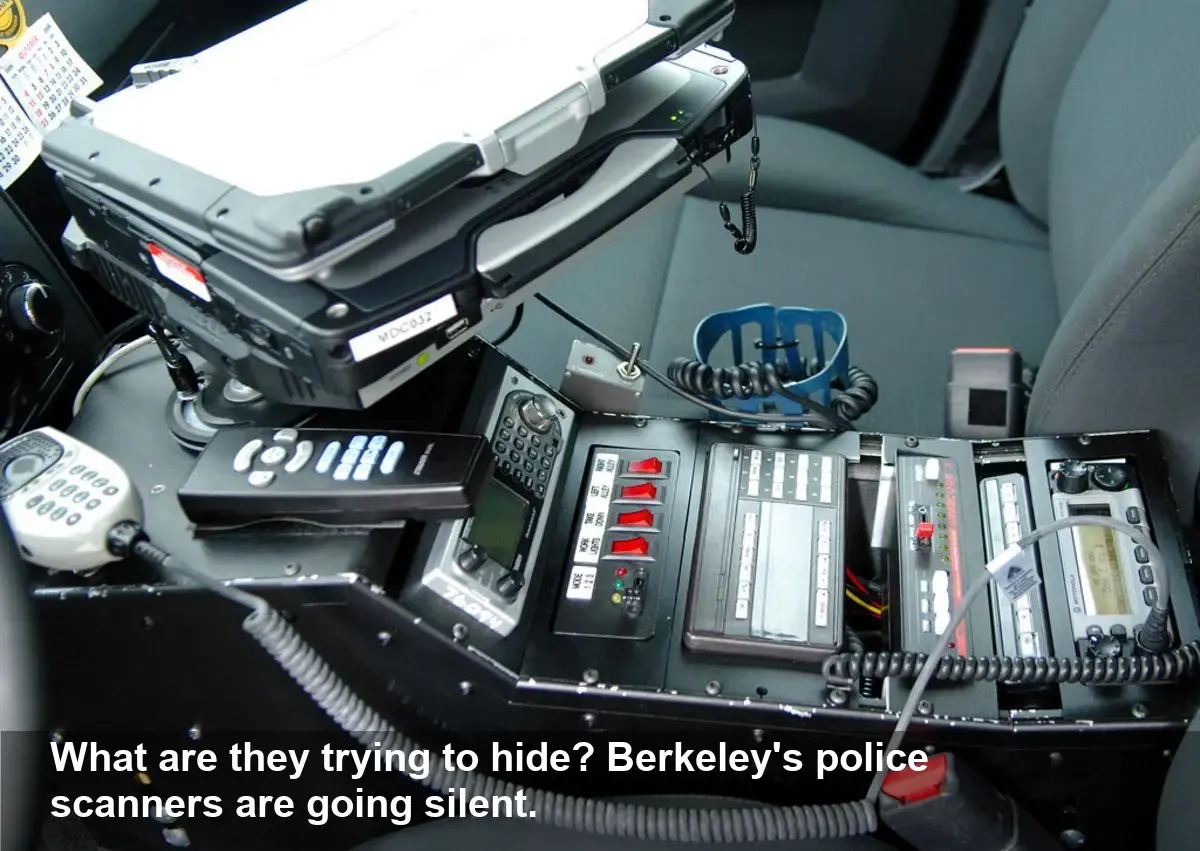Berkeley PD to Encrypt Radios, Sparking Outrage

- The Berkeley City Council has approved a controversial plan for the police department to fully encrypt all its radio communications, ending public access.
- Police Chief Jen Louis cited officer safety, victim privacy, and a 2020 state mandate as primary reasons for the switch.
- The decision was met with widespread opposition from journalists, transparency advocates, and the city’s civilian police oversight board, who fear a critical loss of public accountability.
- Despite BPD’s claims of maintaining transparency, the move comes as the department has been criticized for unresponsiveness to press inquiries.
Berkeley Police Go Silent, Sparking Transparency Fears
The Berkeley Police Department, the last law enforcement agency in Alameda County to use open radio channels, will soon encrypt all its communications, effectively cutting off real-time access for the public and the press. The Berkeley City Council approved the move in an 8-1 vote, siding with the police department over the strenuous objections of transparency advocates.
The Rationale: Protecting Officers and Victims
Police Chief Jen Louis argued that encryption is essential for modern policing. She told the council that the department has seen a rise in incidents where suspects use scanner apps to monitor police movements and evade capture, citing three such cases in the last month and a half alone.
Beyond tactical concerns, the department emphasized the need to protect the privacy of crime victims, as mandated by a 2020 directive from the state Attorney General’s Office. “Victims of domestic violence, sexual assault or other crimes have no idea that their names, addresses, injuries or locations could be broadcast over the air,” said Sgt. Neil Egbert, president of the Berkeley police union. BPD also noted that encryption would prevent federal immigration agencies from monitoring their operations, aligning with Berkeley’s sanctuary city policies.
While other departments have found ways to protect sensitive information without full encryption—such as using cellphones for personal data—Chief Louis claimed that switching between encrypted and unencrypted channels would be unmanageable for her understaffed department.
A "Dangerous" Blow to Public Information
The decision has been widely condemned by media outlets, community activists, and even the city’s Police Accountability Board. Opponents argue that the public scanner is a vital tool for real-time information during emergencies like shootings, fires, and protests.
“Removing the scanner would not make Berkeley safer. It would make our city less informed and more dependent on filtered, delayed narratives,” said Taj Herzer-Baptiste, an EMT and member of the city’s Disaster and Fire Safety Commission.
The Police Accountability Board had urged the council to delay the vote, asking for data to substantiate the dangers police cited. Media outlets, including Berkeleyside and the Berkeley Scanner, warned that the community will "lose access to a critical resource."
Promises of Transparency Amidst Silence
In a memo, Chief Louis insisted her department’s “commitment to transparency remains strong.” BPD has pledged to provide a more frequently updated public call log and increase its use of social media. However, these promises have been met with skepticism. The original report noted that BPD had failed to respond to press inquiries from Berkeleyside for 21 days leading up to the decision, undermining its claims of open communication.
It remains unclear when the encryption will be activated. As of Wednesday afternoon, BPD’s radio traffic was still being broadcast in the open.





